Foundations of Mathematics: Brouwer's Intuitionism Versus Hilbert's Programme
- Rebecca Ivory
- Feb 6, 2023
- 16 min read
Updated: Feb 16, 2023
Luitzen Egbertus Jan Brouwer (1976) and David Hilbert (1922) both deny that claims about actual infinite sets are strictly speaking meaningful. Their approaches, however, prove quite different to say the least. Whilst Brouwer proposes a drastic form of intuitionism requiring much of existing mathematics to be abandoned, Hilbert (1922) proposes a less extravagant formalist programme which preserves existing mathematics given that the infinite is meaningless but nevertheless very important to mathematics. Unlike Hilbert, Brouwer (1976) notably claims that language is completely irrelevant to mathematics. Mathematics is instead grounded in human mental constructions. Crucially, this means that the two accounts are affected very differently by Kurt Gödel’s (1992) second incompleteness theorem in the shift to intuitionism and retreat from mathematics grounded in logic. Departing from classical mathematics and simultaneously turning to intuitionism is paramount in both Brouwer and Hilbert’s accounts. It is just the degree to which they do this that differs. Hence this article compares and contrasts the two, specifically in relation to the impact of Gödel’s second incompleteness theorem on Hilbert’s programme. In sum, this article will examine whether Brouwer’s intuitionism or Hilbert’s programme can be taken seriously in (the philosophy of) mathematics.
Russell’s Paradox: The Shift to Intuitionism
Bertrand Russell’s (1996) prominent paradox discovered in 1901 resulted in a shift to intuitionism in mathematics. His paradox proved destructive and stemmed from Set Theory (i.e., the branch of mathematical logic that studies sets) (Dauben, 1979) by considering the set of all sets that are not members of themselves. Russell noted that such a set appears to be a member of itself if and only if it is not a member of itself (Irvine and Deutsch, 2021). Consider a simple example:
Some sets, such as the set of all key-rings, are not members of themselves.
Other sets, such as the set of all non key-rings, are members of themselves.
Call the set of all sets that are not members of themselves K. If K is a member of itself, then by definition it must not be a member of itself.
Likewise, if K is not a member of itself, then by definition it must be a member of itself.
Hence the paradox – it is not the case that any condition or property may be used to determine a set (Irvine and Deutsch, 2021). Russell’s (1996) paradox in particular affected Gottlob Frege’s logical—influential—work since it essentially revealed that the axioms Frege was using to formalise his logic were inconsistent (Russell, 1902). As suspicion of logical mathematics grew, so did the credibility of intuitionism.
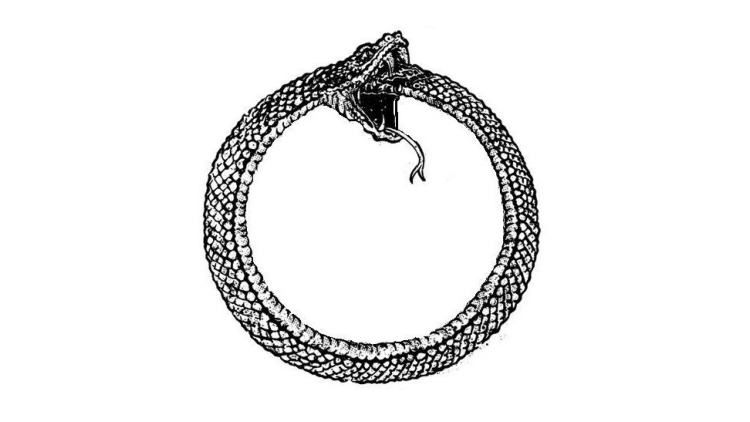
Brouwer and Hilbert have different motivations when claiming that infinitary mathematics is meaningless. The severity of the challenges they face are therefore different too. Hilbert, for instance, did not believe that paradoxes (like Russell’s) were showing mathematics (like Set Theory) to be in any way defective (Giaquinto, 2006). Hilbert [1922] even declared that “there is a completely satisfactory way of escaping the paradoxes without betraying our science”, as cited by Marcus Giaquinto (pp.161., 2006). As for Brouwer, it is contrastingly unclear how much of a direct impact Russell’s paradox had on his intuitionism. Although the paradox is undeniably responsible for the shift to intuitionism generally in mathematics, it did not have a direct influence on Brouwer’s work in particular. Alternatively, Brouwer (1976) introduced a more fundamental concept of ‘ur-intuition’ of mathematics. This is the ultimate foundation on which, in Brouwer’s terms, the mathematical edifice is constructed (van Dalen, 2008). It consists of the intuition of the flow of time in which the individual experiences perceptions of change (Kuiper, 2004) (Brouwer was indeed largely influenced by Immanuel Kant. Consider Kant's transcendental idealism, for example). Brouwer’s intuitionism is notably a drastic revisionary picture of mathematics, far reaching despite any renewed suspicion of classical (logical) mathematics post-Russell’s paradox.
Brouwer’s Intuitionism
According to Brouwer, formal reasoning and mathematical logic is untrustworthy (van Dalen, 2008). Mathematical reasoning should instead be guided by intuition, Brouwer argues, which means abandoning the infinite since the subject matter of mathematics is human mental constructions (i.e., humans cannot construct infinites via their intuition). It is worth noting that Brouwer is sometimes—or was initially—taken to be concerned with constructions in each individual person’s mind (Linnebo, 2017), owing to the so-called ‘psychologistic’ view of arithmetic. On this view, however, the question of how mental constructions are communicated is raised. As Norwegian philosopher Øystein Linnebo (2017) puts it, “your natural numbers are different from mine; after all, the former exist only in your mind, and the latter, only in mine” (pp.80). This is not the case, though. Brouwer’s intuitionism is not concerned with the communication of such mental constructions. Influenced by Kant, Brouwer (1976) asserts that the natural numbers are simply dependent on human thought in general – not on each individual human mind. This still raises a major issue for Brouwer since it implies that mathematical objects do not exist until our construction of them. If this is the case, impredicative definitions in principle are completely unacceptable and require that an object has been constructed before it can be constructed which is viciously circular. The very definition begs the question, and the dependency of mathematical objects on human minds creates a new issue (i.e., that these mathematical objects cannot exist until we construct them) which then aggravates the original difficulty. Like Russell, Brouwer (1976) and intuitionists more generally are therefore forced to reject the use of impredicative definitions in mathematics.
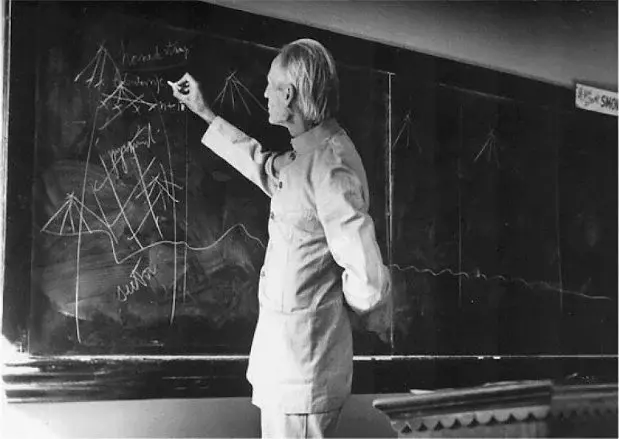
In Brouwer’s (1976) dissertation introducing intuitionism, he opens with this:
“‘One, two, three, …’, we know by heart the sequence of these sounds (spoken ordinal numbers) as an endless row, that is to say, continuing for ever according to a law, known as being fixed. In addition to this sequence of sound-images we possess other sequences proceeding according to a fixed law, for instance the sequence of written signs (written ordinal numbers) 1, 2, 3, … These things are intuitively clear.” (Linnebo, pp.75, 2017)
Brouwer is referring to ‘intuitive counting’ here, where the main theorem of arithmetic can be deduced by complete induction. This sort of induction refers to a natural mathematical act. John Kuiper (2004) notes here that addition, multiplication, and exponentiation are subsequently defined by means of continued and/or repeated counting, and after that the laws of commutativity, associativity, and distributivity for these operations are deduced. Also, similar to the proof of the main theorem of arithmetic, these sorts of deductions are merely sketches. A proof should therefore be inductive. What’s more, the very fact that they can be proven follows from our intuition (which is a natural act). Hence the truth of any mathematical statement—or its negation—consists in human construction of its proof (or disproof if one proves that the ‘proof’ of the given statement is impossible). Brouwer’s (1976) view is that “there are no non-experienced truths” in mathematics here, as Linnebo adduces (pp.73., 2017). Such a view is antirealist, meaning that while there are mathematical objects, these are human mental constructions that are not independently real in the same way physical objects are. Brouwer’s (1976) intuitionism is thus primarily concerned with developing the finitary parts of mathematics and completely departs from classical mathematics. Finitary mathematics is the only meaningful portion. Any mathematical theorising about uncountable sets is utterly meaningless. Whilst humans can grasp the continuum by understanding the notion of the never-ending supply of possible points between two points, humans cannot construct larger sets than this (even in principle) (Placek, 1997).
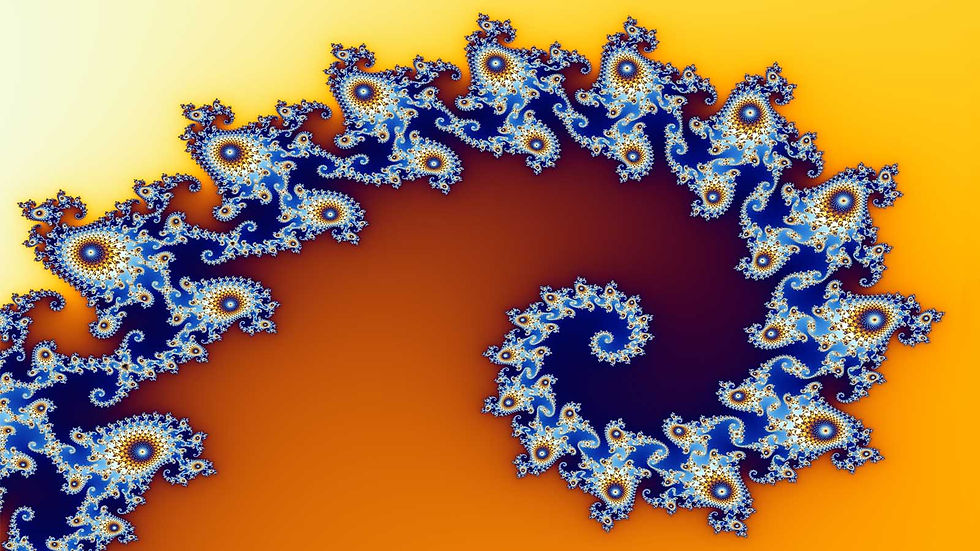
Although Brouwer (1976) does permit the use of ‘potential infinites’, such as the countable infinite set of all natural numbers, larger infinite sets are nevertheless incomprehensible. Humans cannot construct them in any temporal process. Georg Cantor’s creation of modern set theory revealing (i) infinitely many infinites of all different sizes and (ii) one-to-one correspondence with the set of all fractions showing these two sets have the same infinity (Flood, 2015) should therefore be ditched in Brouwer’s intuitionism. Evidently then, Brouwer’s proposal is quite drastic. His intuitionistic logic, as Linnebo (2017) describes, “does violence to our existing inferential practice” (pp.76). Brouwer’s intuitionism calls for an extreme revisory of (classical) mathematics as we know it, involving the complete abandonment of ‘meaningless’ infinite sets.
Hilbert’s programme
Hilbert’s (1922) approach is less radical, though not much. Despite Hilbert’s devotion to intuition, he maintained—as Linnebo (2017) cites—that “mathematical analysis is a symphony of the infinite” (pp.56). Hilbert’s programme is a polished development of formalism. As suggested by the name, ‘formalist’ approaches to mathematics are concerned with the formal parts of mathematics. So, it is not the mathematical symbols that are significant, but their formal manipulation (Detlefsen, 1993). To arrive at his programme of ‘real’ (finitary) mathematics, Hilbert marries ‘term’ formalism with ‘game’ formalism (or at least their most appealing aspects) to overcome the challenges each notion faces. The term-formalist views the expressions of mathematics as meaningful, such as arithmetic. Symbols don’t refer to numbers but refer to themselves. They refer to themselves as entities which are distinct from symbols. On this view, the subject matter of mathematics are the symbols used to express mathematical claims. This also involves the potential to manipulate such symbols in accordance with the rules of syntax (Weir, 2020) (axioms and their manipulation, for instance). The game-formalism, on the other hand, does not hold mathematics—its subject matter or any mathematical claims—as meaningful. Mathematical utterances have no meaning and are incapable of stating facts. Consider Frege’s [1903] words cited by Weir (2020):
“…for the formalist, arithmetic is a game with signs which are called empty. That means that they have no other content (in the calculating game) than they are assigned by their behaviour with respect to certain rules of combination (rules of the game.)” (pp.190).
Put differently, the formal games that mathematics consists of are not really about anything at all. Most importantly, both the ‘term’ and ‘game’ formalism face serious difficulties. Whilst the former faces barriers concerning the mathematics uninvolved with symbols (e.g., real numbers), the latter is oversimplified (i.e., one must ask how axiomatic system games in mathematics differ to other sorts of games). To assert that mathematics is merely a calculus in which empty symbol strings are transformed according to fixed rules (Weir, 2020) is possibly quite a facile generalisation. Hence Hilbert (1922) combines the most attractive elements of term and game formalism. On Hilbert’s programme, ideas from term formalism can account for finitary mathematics and its foundational axioms (Linnebo, 2017). As for infinitary mathematics (regarded as a purely ‘formal’ theory), this can make use of ideas from the game formalism. Whilst the more elementary and basic parts of mathematics originate from term formalism—since this consists of mathematical statements about symbols—the rest of mathematics is like a formal game and originates from the game formalism. Drawing on ideas from the game formalism is an important part of Hilbert’s (1922) programme since it resolves any issues caused by the term formalism (i.e., the difficulties with the parts of mathematics that don’t appear to be involved with any symbols).
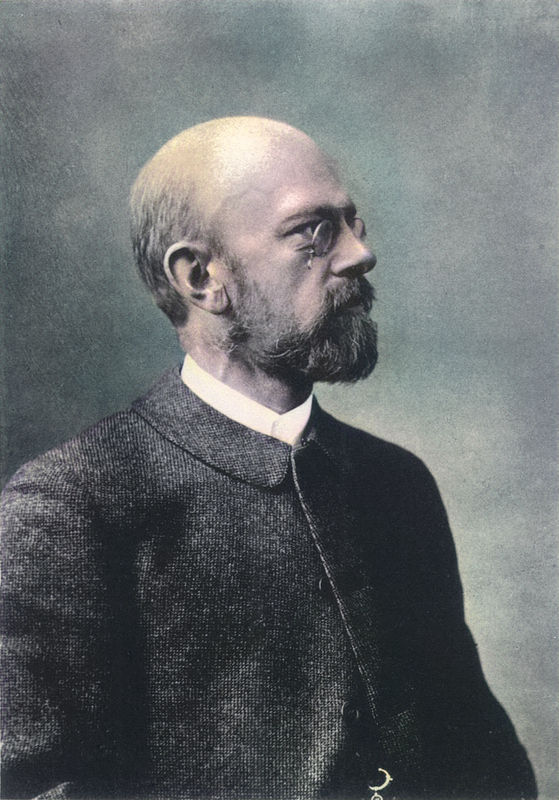
Despite recognising the usefulness of infinitary mathematics, Hilbert—like Brouwer—asserts that absolutely all of the strictly meaningful parts of mathematics must be grounded in intuition (Kitcher, 1976). Obviously, there is neither intuition nor experience of the infinite. Such experience is impossible, and intuitions are thus only ever, in principle, of a finitary nature. For any mathematical claim to be meaningful, it must therefore be finitary. The two go hand in hand. Unlike Brouwer, however, Hilbert’s brilliant (and less drastic) alternative is to propose ideal (infinitary) mathematics to protect classical logic. Such preservation was notably important to Hilbert as it involves making use of the infinite (Kitcher, 1976). As Hilbert wrote [1922] and Linnebo (2017) cites, although “the infinite has stirred men’s emotions more than any other question, […] hardly any idea has stimulated the mind so fruitfully”. Further, Hilbert goes on, “no other concept needs clarification more than it [the infinite] does” (pp.60, 2017).
Hilbert’s formal approach to the infinite meant he introduced ideals: strictly meaningless claims in mathematics but claims that prove most useful and still important to mathematics. Ideals aim at providing a secure foundation for set theory (recall that this was previously refuted by Russell’s (1996) paradox and subsequently abandoned by Brouwer). Hilbert describes the infinite as an illusion, but nevertheless something that is still used in deductive methods (Linnebo, 2017). Thus, the parts of the term formalism (i.e., the ‘contentful’ parts of mathematics regarding quasi-concrete syntactical objects) Hilbert incorporates are useful here to fill out the gaps in meaningful finitary mathematics. Ideal elements are very important and are of frequent occurrence in mathematics. One must point to examples of negative, irrational, imaginary, ideal and transfinite numbers. In geometry, for instance, Hilbert had in mind the examples of points, lines, and planes at infinity, whose introduction “gives geometry a certain completeness”, as Stillwell puts it (pp.36., 2014). The imaginary unit "i = √–1" allows for all algebraic equations to be solved and the point at infinity ensures that any two lines in projective geometry intersect, therefore eliminating special cases. To give an example, i was used as a root of the equation x2 + 1=0. Ideal elements, particularly cleverly, have a way round the question ‘do such strange numbers really exist?’ by providing a useful fiction (Linnebo, 2017). This is not strictly speaking meaningful according to Hilbert’s programme, nor is it meant to allow any ‘false’ conclusions regarding the finitary (and meaningful) parts of mathematics. The most important part of ideal elements is not their truth, but their usefulness. As Linnebo (2017) notes, a variety of ideal elements came to be accepted in this way, and, by the early nineteenth century, points at infinity were postulated as imagined points of intersection of parallel lines giving rise to the significant theory of projective geometry as a result. Like the points at infinity, and their use in the theory of projective geometry, Hilbert (1922) wanted to treat the infinite in exactly the same way: a useful fiction. Unlike Brouwer’s intuitionism, one can expand their language to allow talk of such numbers and formulate a theory in this language that describes them (i.e., one can formalise the language and theory of infinitary, meaningless, mathematics).
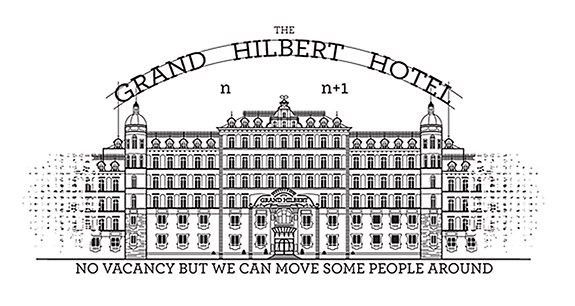
There is nevertheless one important condition for Hilbert’s programme and use of the infinite. This is a proof of consistency, for the extension of a domain by the addition of ideal elements is legitimate only if the extension does not cause contradictions to appear in the old, narrower domain (Linnebo, 2017). In other words, the use of ideal elements must be consistent with the finitary (meaningful) mathematics. The programme requires a consistency proof, which is to say that finitary mathematics must be able to prove its own consistency. Such a requirement unfortunately makes Gödel’s (1992) second incompleteness theorem disastrous for Hilbert’s programme when Gödel discovered that no single formal system can prove its own consistency. In fact, the second incompleteness theorem revealed that any formal system that can formulate its own consistency can prove its own consistency if and only if it is inconsistent: for any consistent system F within which a certain amount of elementary arithmetic can be carried out, the consistency of F cannot be proven in F itself (Raatikainen, 2021). Hilbert’s programme, because of Gödel’s second incompleteness theorem, is now almost universally regarded as dead (Linnebo, 2017). Since it is the legitimacy of infinitary mathematics Hilbert is trying to establish, an infinitary proof of consistency is notably unacceptable. The formal programme simply does not have the resources to prove its own consistency, yet mainly because it is strong enough to contain finitary arithmetic.
Hilbert and Brouwer – Can Either Be Taken Seriously?
Clearly, it is difficult to take Hilbert’s programme seriously if it is defeated by Gödel’s second incompleteness theorem (Niebergall and Schirn, 2002). Although Brouwer’s intuitionism appears the more drastic revisionary picture at first glance, it is still arguably more defendable than Hilbert’s programme since Brouwer’s intuitionism can coexist with Gödel’s second incompleteness theorem and isn’t defeated. Nevertheless, some argue that there is yet hope for Hilbert’s programme. Professor of Mathematical Philosophy Alexander Paseau (2011), for example, uses inductive reasoning to show that Hilbert’s own instrumentalism may have been destroyed by Gödel’s theorem, but a broadly Hilbertian instrumentalism [instrumentalist since Hilbert’s programme sees the more theoretical (ideal) parts of mathematics as an instrument for proving truths in the more elementary (real) parts] may not have been. Paseau evaluates the severity of Gödel’s second incompleteness theorem.
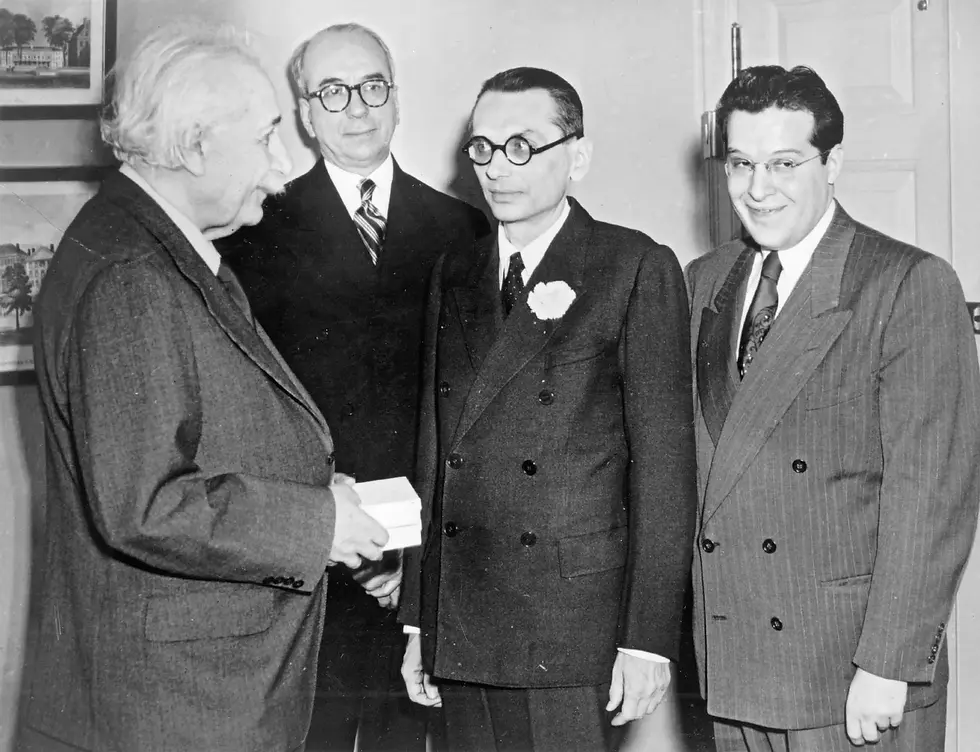
Paseau starts by explaining instrumentalist constraints and the instrumentalist argument to demonstrate how Gödel’s second incompleteness theorem sinks Hilbert’s theory. He then sets out his defence of mathematical instrumentalism in accordance with certain constraints. Whilst instrumentalist constraints are the type of real statements that the ideal parts of mathematics must deliver in order to be successful, the instrumentalist argument is the type of argument required to show that the instrumentalist constraint is satisfied. Examples of instrumentalist constraints that Paseau (2011) sets out are as follows:
1. Reliability
2. Consistency
3. Conservativeness
4. Avoidance
Essentially, Paseau (2011) notes that Hilbert himself insisted on a proof of (2) and (3). The conjunction of consistency and conservativeness here was Hilbert’s instrumentalist constraint, whilst his instrumentalist argument was a proof that the constraint held together. Since Hilbert (1922) thought that real mathematics is what grounds the epistemology of mathematics, a proof of the ‘instrumentalist constraint’ was crucial. Hence why Gödel’s (1992) second incompleteness theorem—showing that consistent deductive systems cannot prove their own consistency—sinks Hilbert’s instrumentalism. Paseau (2011), however, shows that the instrumentalist argument need not take the form of a proof, given that proof isn’t a necessary ingredient of a successful mathematical instrumentalism (even if Hilbert personally insisted it was at the heart of mathematical instrumentalism). To show this, Paseau (2011) adopts reliability as the instrumentalist constraint in his defence. First, this is for the sake of concreteness, but second, also because an instrumentalism that insists on conservativeness already fails because of Gödel’s (1992) first incompleteness theorem. Indeed, Paseau’s defence assumes that instrumentalism has survived the first incompleteness theorem in order for the second theorem to even arise. Besides, Paseau’s argument intends to examine the soundness of the second theorem, not the first. Inductive reasoning is thus at the core of Paseau’s (2011) defence and refers to the fact that instrumentalists can settle for evidence for reliability that does not take the form of a proof. The ‘evidence’ is the inductive defence that, although Gödel’s second incompleteness theorem might sink Hilbert’s instrumentalism, it doesn’t sink mathematical instrumentalism generally.
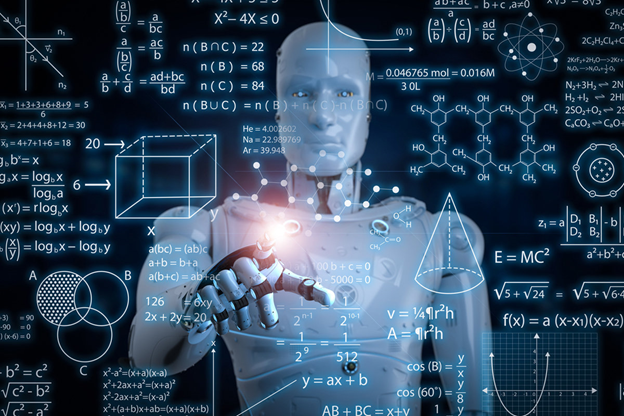
Reliability as a constraint is that for all real p, if p is mathematically provable in real and ideal mathematics, then p is true. To clarify, Paseau is arguing that instrumentalists can settle for evidence of reliability that does not take the form of a proof. Instead, inductive evidence is sufficient to warrant the instrumentalist constraint. This can include any evidence other than a proof such as enumerative evidence, or an inference to the best explanation (Paseau, 2011). This leads to the final part of Paseau’s (2011) defence, which is that mathematical instrumentalism’s success condition is that “the upper tier of mathematics—the instrument—be deemed successful from the perspective of the lower tier” (pp.145). Thus, whatever the so-called upper tier’s success comes to (whether this is consistency, reliability, etc.), establishing it need not consist in producing a lower-tier proof to that effect. Inductive reasons, so long as they are strong enough, can achieve the same end. Inductive evidence may rationally justify a high level of confidence in ideal mathematics’ reliability as such. Paseau (2011) lists several objections and replies to each to explain further and reinforce his defence. An objection, for example, might propound that a proof of reliability would rationally entitle the instrumentalist to a higher credence in this claim that any inductive argument could deliver. Paseau’s response is that perhaps this is true – indeed, Paseau is not denying that a proof of reliability is desirable as far as rational credence-raising is concerned. Even so, Paseau (2011) argues, “this does not affect the moral that an inductive argument can offer good reasons for belief in reliability. Instrumentalism may not be in as a good place as it would have been had a proof of reliability been available; but it is in a good place nonetheless” (pp.146).
The various objections and responses go on where Paseau (2011) maintains that, although Hilbert’s programme may be undercut by Gödel’s second incompleteness theorem, not all mathematical instrumentalist accounts are. Moreover, Hilbert’s programme might be dead, but as Linnebo (2017) describes, has “nevertheless borne many fruits, even if not the particular one that Hilbert most desired” (pp.68). In truth, Hilbert’s programme (conquered by Gödel’s theorem) has still given rise to other important parts of mathematics, but just not the kind of mathematics Hilbert (1922) wanted to achieve (i.e., the proof of consistency). The programme indeed set proof theory as a branch of logic in motion, for example. Even today, this provides many results regarding the relations between formal theories. Be that as it may, doubt going into Hilbert’s response to ‘meaningful’ infinitary mathematics remains because of the impact of Gödel’s second incompleteness theorem.
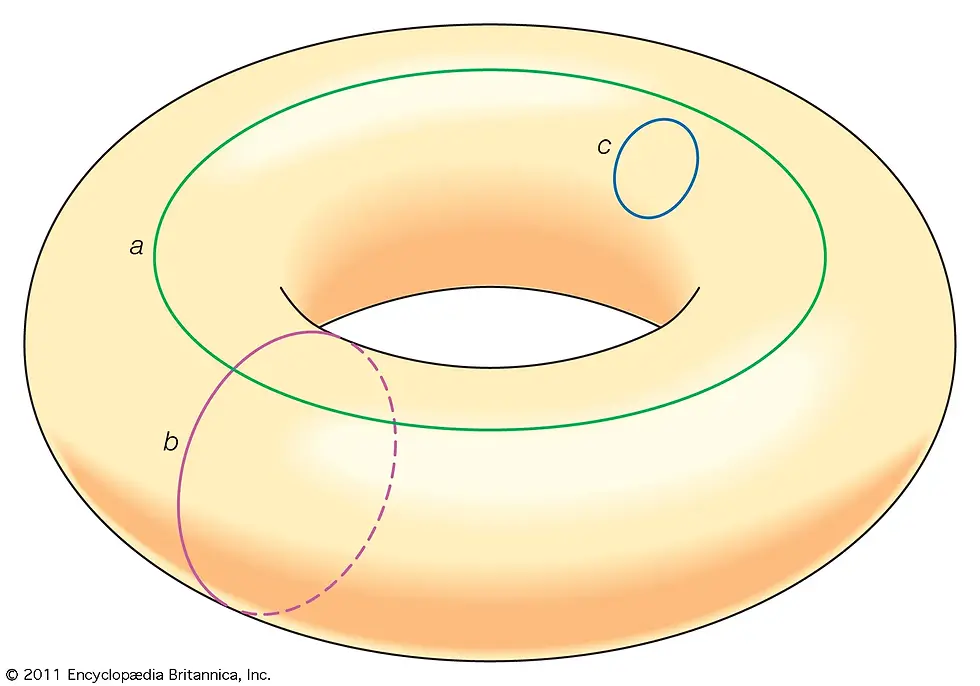
Brouwer’s (1976) intuitionistic picture is drastic compared but can accept Gödel’s incompleteness theorems (most importantly, the second one). However, perhaps this is irrelevant as Brouwer’s response to infinite sets is so revisionary—maybe too revisionary—of existing mathematics. When objecting to this extreme kind of intuitionism, Linnebo (2017) even writes that “the task of the philosopher of mathematics […] is to account for mathematical practice as we actually find it, not to revise it” (pp.183). A complete revision of mathematics would have to be done for very good reason. Brouwer’s reasoning (put simply) is that classical mathematics grounded in logic is untrustworthy and meaningless (such as claims about actual infinite sets) (Van Stigt, 1990). Brouwer grants that infinitary mathematics could be useful and revolutionary, but it is still meaningless (Placek, 1997). For this reason, the only meaningful portion of mathematics is finitary mathematics. Claims about infinite sets must be meaningless, since one cannot construct uncountable sets in any temporal process or even in principle. ‘Potential infinites’ are allowed here, but the promise of Set Theory must be abandoned. As is much of theorising about existing mathematics. Giving up important parts of mathematics one knows and is used to is not to be taken lightly, which means that Brouwer’s proposal is radical and controversial. It nevertheless can't be killed by something like Gödel’s incompleteness theorems. But at what cost?
Concluding Discussion
Neither Brouwer nor Hilbert think that claims about actual infinite sets are strictly speaking meaningful, but this is not to suggest that the two are alike. Indeed, both of their approaches and each account’s sufficiency differ massively. At face value, Hilbert’s programme appears the more convincing response whilst Brouwer’s intuitionism is far-fetched from the start. Such different responses, however, to claims about ‘meaningful’ infinite sets have been assessed by their merits (or lack of merits, in this case). Once evaluated, it becomes clear that Hilbert’s account is incredibly difficult to adopt. Yet Brouwer revises every part of existing mathematics, meaning that if one truly adopts his intuitionism then one also abandons important and influential mathematics such as Cantor’s (1915) set theory. Strictly speaking, Brouwer holds, the only meaningful mathematics can be finitary. If mathematics involves the kinds of processes outside of human mental constructions, then it is meaningless. Mathematics is considered purely a result of constructive mental activity of humans rather than any fundamental principles existing (or claimed to exist) in an objective reality, including infinite sets. So-called ‘non-experienced truths’ cannot and do not exist. Hence, it is extreme. Does this mean that Brouwer’s intuitionism should be dismissed on the grounds that it conflicts with existing mathematical practice, though? (Linnebo, 2017). As Linnebo (2017) points out, it was Wittgenstein who once said that “if a revision of mathematics is needed to preserve meaningful mathematics, then philosophers should not leave everything as it is” (pp.203).
Hilbert’s approach is more ‘sympathetic’ to existing mathematics, so to speak, as reflected by his attempt to preserve the (meaningless) infinitary mathematics because it is so useful. Ideal elements preserve this, as does the interesting combination of the game and term formalism. Yet the issue is not the claim that infinite sets are meaningless, but the fact that Gödel’s second incompleteness theorem destroys Hilbert’s programme altogether. This is accepted universally, that Hilbert’s formalism is dead due to the impossibility of the consistency proof. In fact, any formal system that can formulate its own consistency can prove its own consistency if and only if it is inconsistent. Hilbert’s programme is simply defeated. Even in defending mathematical instrumentalism, Paseau (2011) contends that there is little hope for Hilbert’s particular case. When comparing Hilbert and Brouwer’s responses to claims about meaningless infinite sets, Hilbert’s is thus arguably the more difficult response to take seriously. Brouwer’s is undeniably a drastic proposal but survives Gödel’s second incompleteness theorem. Also, the drastic nature of his intuitionism doesn’t mean that it should be set aside.
Bibliographical References
Brouwer, L., (1976). Geometry, analysis, topology and mechanics. Amsterdam: North-Holand Publ.
Cantor, G. (1915). Contributions to the Founding of the Theory of Transfinite Numbers (Vol. 45). Dover Publications.
Dauben, Joseph (1979), Georg Cantor: His Mathematics and Philosophy of the Infinite, Harvard University Press, pp. 30–54
Detlefsen, M. (1993). Hilbert's formalism. Revue internationale de philosophie, 285-304.
Flood, R., (2015). Cantor's Infinities. [online] Gresham.ac.uk. Available at: https://www.gresham.ac.uk/watch-now/cantors-infinities [Accessed 8 April 2021].
Giaquinto, M., (2006). The search for certainty. Oxford: Clarendon Press.
Gödel, K. (1992). On formally undecidable propositions of Principia Mathematica and related systems. Courier Corporation.
Hilbert, David, (1922), “Neubegründung der Mathematik: Erste Mitteilung”, Abhandlungen aus dem Seminar der Hamburgischen Universität, 1: 157–177. Series of talks given at the University of Hamburg, July 25–27, 1921. Reprinted with notes by Bernays in Hilbert (1935, 157–177). English translation in Mancosu (1998a, 198–214) and Ewald (1996, 1115–1134).
Irvine, A. and Deutsch, H., (2021). Russell's Paradox. In: The Stanford Encyclopedia of Philosophy. Metaphysics Research Lab, Stanford University.
Kitcher, P. (1976). Hilbert's epistemology. Philosophy of Science, 43(1), 99-115.
Kuiper, J., (2004). Ideas and explorations. Utrecht: Zeno, the Leiden-Utrecht Research Institute [of Philosophy].
Linnebo, Ø. (2017). Philosophy of Mathematics. Princeton: Princeton University Press. https://doi.org/10.1515/9781400885244
Niebergall, K. G., & Schirn, M. (2002). Hilbert's programme and Gödel's Theorems. Dialectica, 56(4), 347-370.
Paseau, A., (2011). Mathematical instrumentalism, Gödel’s theorem, and inductive evidence. Studies in History and Philosophy of Science Part A, 42(1), pp.140-149.
Placek, T. (1997). On Brouwer’s criticism of classical logic and mathematics. Logic and Logical Philosophy, (5), 19-33.
Raatikainen, P., (2021). Gödel’s Incompleteness Theorems. In: The Stanford Encyclopedia of Philosophy. Metaphysics Research Lab, Stanford University.
Russell, B. (1902). Letter to frege. From Frege to Gödel, 124-125.
Russell, B., (1996). The Principles of mathematics. 2nd ed. New York: W. W. Norton & Company.
Stillwell, J., (2014). Ideal Elements in Hilbert's Geometry. Perspectives on Science, 22(1), pp.35-55.
van Dalen, D. (2008). Another look at Brouwer’s dissertation. In One Hundred Years of Intuitionism (1907–2007) The Cerisy Conference (pp. 3-20). Birkhäuser Basel.
Van Stigt, W. P. (1990). Brouwer's intuitionism (pp. 7-19). Amsterdam: North-Holland.
Weir, A., (2020). Formalism in the Philosophy of Mathematics. In: The Stanford Encyclopedia of Philosophy. Metaphysics Research Lab, Stanford University.
Visual Sources


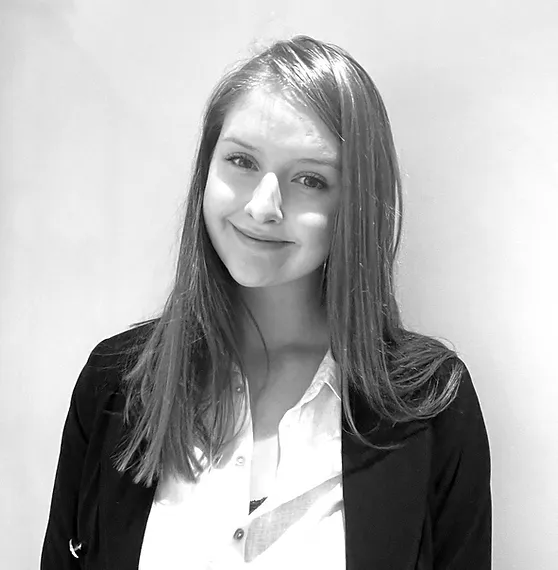

Comments